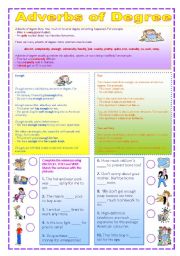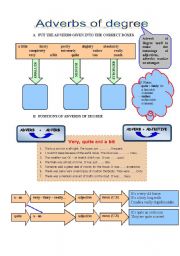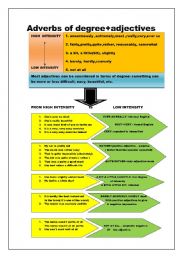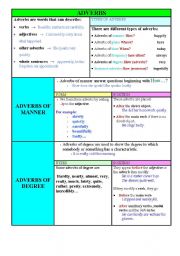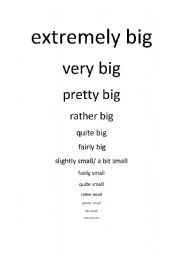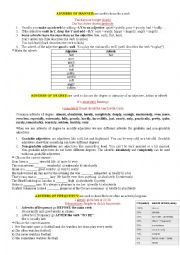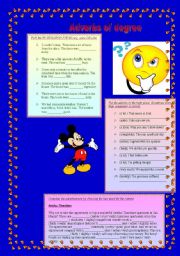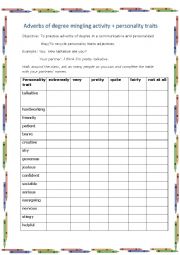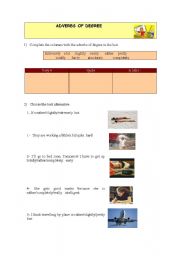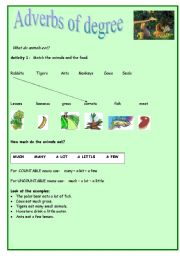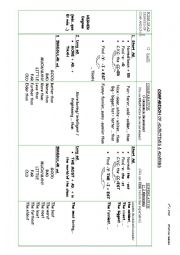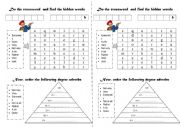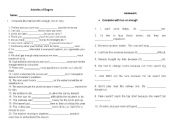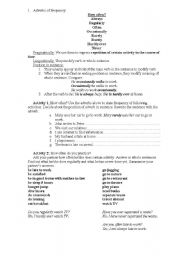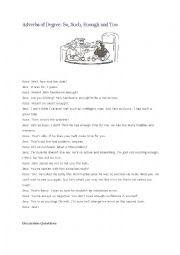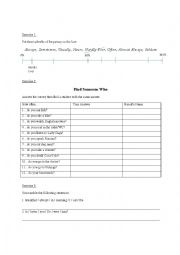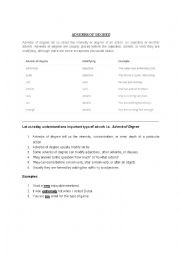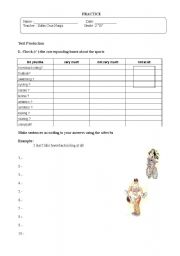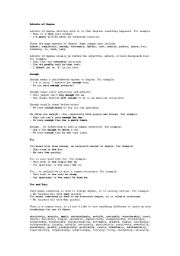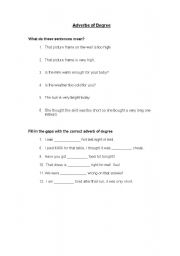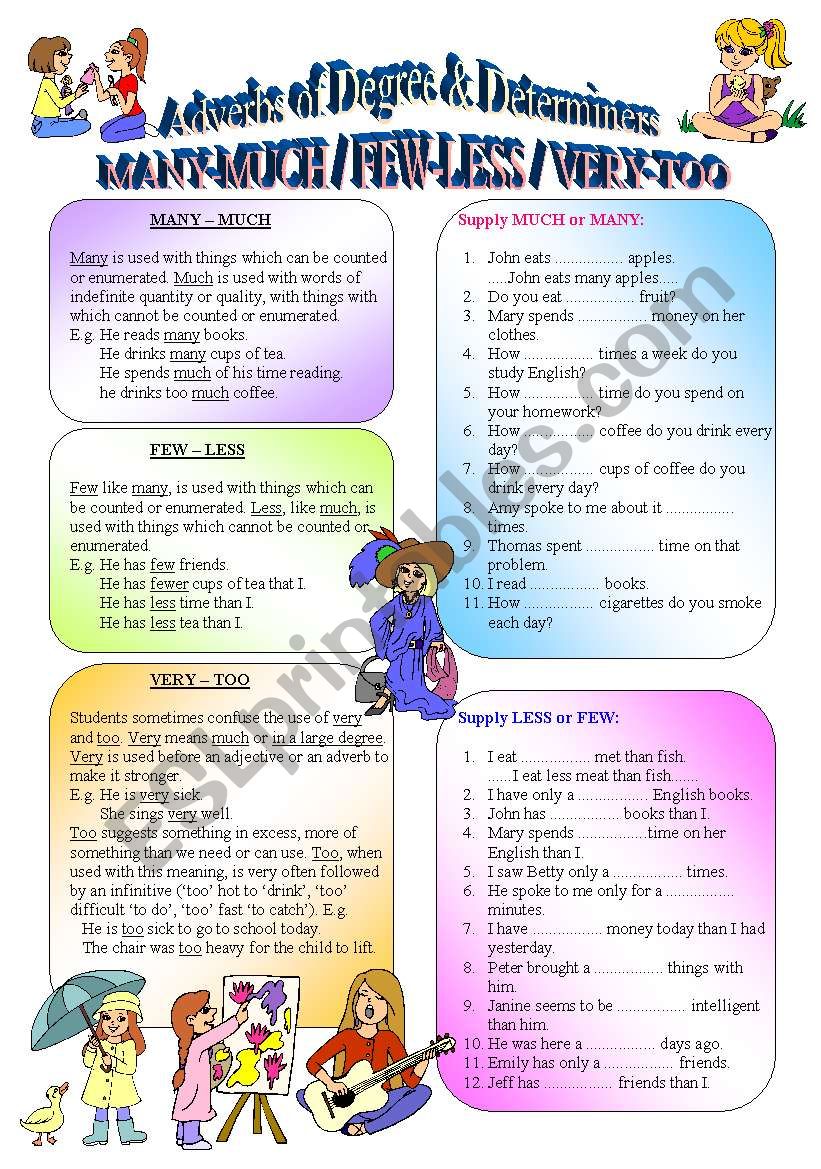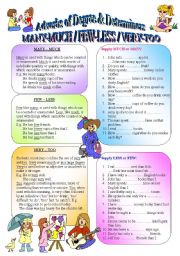
|
Adverbs of Degree & Determiners - MANY-MUCH/FEW-LESS/VERY-TOO - (( definition & 60 exercises to complete )) - elementary/intermediate - (( B&W VERSION INCLUDED ))
Students sometimes confuse the use of very and too. Very means much or in a large degree. Very is used before an adjective or an adverb to make it stronger. Too suggests something in excess, more of something than we need or can use. Too, when used with this meaning, is very often followed by an infinitive (‘too’ hot to ‘drink’, ‘too’ difficult ‘to do’, ‘too’ fast ‘to catch’). Many is used with things which can be counted or enumerated. Much is used with words of indefinite quantity or quality, with things with which cannot be counted or enumerated. Few like many, is used with things which can be counted or enumerated. Less, like much, is used with things which cannot be counted or enumerated. This worksheet focusses on "when, why & how" to teach students these adverbs of degree and determiners. There are 60 exercises in total. Black & White version also included. Hope you find it useful. Cheers.
Level:elementary
Age: 7-17
Downloads:314 |
|
Copyright 15/8/2009 ranclaude
Publication or redistribution of any part of this
document is forbidden without authorization of the
copyright owner.
|


see more worksheets by ranclaude
|

